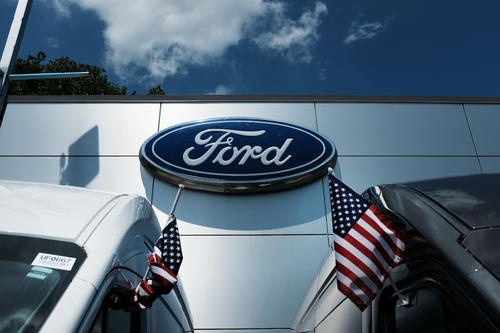
In the context of the vigorous development of today's electric vehicle industry, every technological innovation and product iteration affects the nerves of the market, especially on safety and quality issues, but also the focus of consumer attention. Recently, according to foreign media InsideEVs reports, an emergency notice from Ford Motor Company has triggered widespread concern and discussion in the industry. The notice requires some electric vehicle owners to immediately stop using the Tesla overcharge network adapters equipped with the car, because of potential problems with these adapters, which may not only affect the charging efficiency, but also pose a threat to the vehicle charging port. This incident not only exposed Ford's negligence in supply chain management, but also once again pushed the issue of compatibility and safety of electric vehicle accessories to the forefront.
First of all, from a technical perspective, Ford's choice to cooperate with Tesla's supercharge network adapter should have been an active attempt to promote the convenience of charging different brands of electric vehicles. However, this incident has exposed the huge challenges in technical compatibility and quality control of cross-brand charging accessories. Tesla, as the leader of the electric vehicle industry, is widely praised for the efficiency and convenience of its overcharge network, but the differences in the design, electrical interface and software algorithm of different brands of vehicles make direct adaptation not easy. Ford's emergency recall is undoubtedly a deep lesson in this point, reminding all automakers that while pursuing technological innovation and market expansion, they must strictly control the compatibility and safety of parts.
Further investigation, the emergence of the problem adapter, but also exposed the shortcomings of Ford in supply chain management. As a century-old automaker, Ford should have established a comprehensive supplier evaluation and monitoring system to ensure that every part entering the market meets high standards of quality. However, the outbreak of this incident shows that Ford's supply chain management system has obvious gaps in identifying potential risks and implementing effective supervision. This not only damages the interests of consumers, but also affects the reputation and image of the Ford brand. In the future, Ford needs to deeply reflect on and strengthen supply chain management to prevent similar problems from happening at the source.
From the perspective of consumer rights protection, although Ford's handling of this case is rapid, it is still difficult to hide its lag in problem discovery and information disclosure. According to reports, some owners may have used the hidden adapter for a long time before receiving the emergency notice, which undoubtedly increases the risk of damage to the vehicle. In addition, whether Ford has developed a clear compensation plan for vehicles that have been damaged or may be damaged is also the focus of concern for the majority of car owners. In such incidents, enterprises should uphold a highly responsible attitude towards consumers, proactively, timely and comprehensively disclose information, actively take measures to reduce consumer losses, and establish a sound compensation mechanism to safeguard the rights and interests of consumers.
The incident also reflects the lack of standardization of charging accessories in the electric vehicle industry. With the increasing expansion of the electric vehicle market, the compatibility of charging facilities and accessories of different brands and different countries has become an urgent problem to be solved. The lack of a unified industry standard not only increases the cost of use for consumers, but also lays security risks. Therefore, both inside and outside the industry should work together to promote the establishment of a unified standard for electric vehicle charging accessories, promote the interconnection between different brands and different countries, and improve the service level and safety of the entire industry.
Finally, this event also provides valuable inspiration for the future development of the electric vehicle industry. On the one hand, car manufacturers should be deeply aware of the importance of technical compatibility and parts safety, strengthen independent research and development and quality control, to ensure that every part can meet the requirements of high standards. On the other hand, the government, industry associations and scientific research institutions should also strengthen cooperation to jointly promote the standardization and standardization of electric vehicle charging technology, laying a solid foundation for the healthy development of the industry.
In short, Ford Motor Company's emergency recall of Tesla's supercharged network adapter is an individual case, but it reflects the many challenges facing the electric vehicle industry in the process of rapid development. It requires all participants to take a more rigorous attitude towards technological innovation and quality control, jointly promote the sustainable development of the electric vehicle industry, and contribute to the construction of a green, safe and convenient travel environment.

Junior doctors in the UK officially launched a five-day strike on Wednesday (December 17th).
Junior doctors in the UK officially launched a five-day str…
The Thai Pride Party is considering nomasting three candida…
With the continuous intensification of international sancti…
With $15.82 billion in sales and a 108% year-over-year incr…
According to the South Korean media Dealsite, the recent te…
The current geopolitical conflicts around the world are oft…